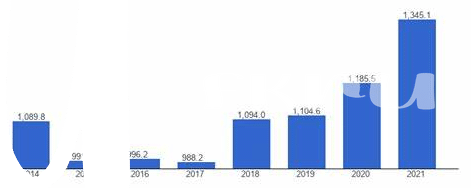Historical Context 📜

In the early years of Albania, the flow of remittances played a crucial role in sustaining and supporting many families in the region. These remittances, often coming from relatives working abroad, served as a lifeline for countless households, contributing significantly to the local economy. The traditional methods of transferring money were often cumbersome and costly, making it a challenging process for both senders and receivers. Consequently, the reliance on these remittance channels shaped the financial landscape of Albania, highlighting the importance of efficient and accessible means of sending money across borders.
Current Remittance Patterns 💸
Albania’s remittance landscape showcases a dynamic interplay of financial transactions, reflecting the enduring ties between the diaspora and their homeland. Families rely on these monetary flows for sustenance and investment, with traditional methods such as money transfer services and informal networks remaining prevalent. However, the emergence of Bitcoin as a remittance tool has brought about a shift in this pattern, offering a faster, more cost-effective solution. The allure of near-instantaneous transfers and lower fees has prompted some Albanians to explore this digital alternative, signaling a potential evolution in how remittances are conducted within the country.
Bitcoin Adoption in Albania 🚀

In recent years, Albania has seen a gradual but increasing adoption of Bitcoin as a means of transferring money across borders. This adoption has been especially prominent among the younger population and those working abroad who seek quicker and cheaper alternatives to traditional remittance methods. The decentralized nature of Bitcoin appeals to many in Albania, offering a sense of autonomy and control over their financial transactions. While still in the early stages, the growth of Bitcoin adoption in Albania signals a shift towards embracing digital currencies as a viable option for remittances and financial transactions.
As Bitcoin continues to gain traction in Albania, it presents new opportunities and challenges for the country’s remittance landscape. The potential for faster and more cost-effective transfers could significantly impact the way Albanians send and receive money from abroad. However, concerns about the volatility of Bitcoin prices and regulatory uncertainties loom large, posing obstacles to widespread adoption. As the ecosystem evolves, navigating these challenges will be crucial in harnessing the full potential of Bitcoin for remittances within Albania.
Advantages of Bitcoin Remittances 🌍

When it comes to utilizing Bitcoin for remittances in Albania, several advantages are evident. Firstly, the decentralized nature of Bitcoin means that transactions are processed quickly and directly between individuals, bypassing the need for traditional banking systems. This leads to lower transaction fees, particularly beneficial for cross-border remittances. Additionally, the transparency and security features of the blockchain technology behind Bitcoin help in tracking and verifying transactions, ensuring funds reach the intended recipients securely. Furthermore, the borderless nature of Bitcoin allows for remittances to be sent to any location without restrictions or delays. As highlighted in using bitcoin for international remittances in Algeria, this form of digital currency facilitates efficient, cost-effective, and reliable remittance transfers, impacting how money is sent and received globally.
Challenges and Concerns 🔒
Bitcoin’s rising prominence in Albania’s remittance landscape is not without its challenges and concerns. One of the primary concerns revolves around the volatility of Bitcoin prices, leading to potential fluctuations in the value of remittances sent and received. Additionally, regulatory uncertainties and security risks associated with digital currencies raise apprehensions among users. The lack of widespread understanding of how Bitcoin works and the potential for fraudulent activities further compound these concerns. Addressing these challenges will be crucial in ensuring the sustainable integration of Bitcoin into Albania’s remittance ecosystem, fostering trust and reliability among users.
Future Outlook and Potential Impact 🌟

In light of the growing adoption of Bitcoin for remittances in Albania, the future outlook appears promising with the potential to revolutionize the traditional landscape of cross-border money transfers. As the crypto space evolves, the utilization of Bitcoin for international remittances is expected to increase, offering individuals streamlined and cost-effective solutions. This shift could lead to greater financial inclusion and empowerment for many Albanians, especially those reliant on remittances for their livelihoods. Furthermore, the transparency and borderless nature of Bitcoin transactions could pave the way for more efficient and secure cross-border transfers. Looking ahead, the continued integration of Bitcoin into Albania’s remittance ecosystem holds the promise of reshaping how money is sent and received, ultimately driving positive social and economic change. To learn more about using Bitcoin for international remittances in Afghanistan, consider exploring how it is being implemented in Angola by clicking using bitcoin for international remittances in Angola.
